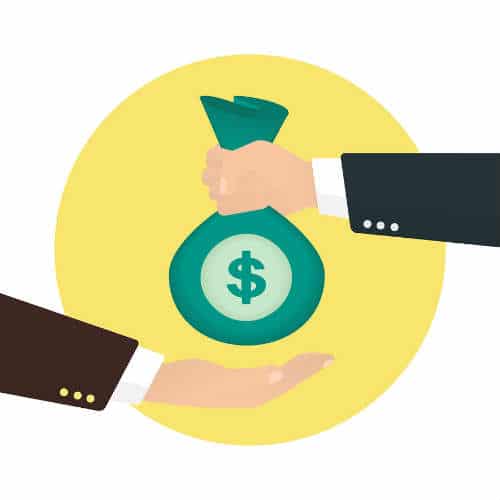When you think about an individual who would borrow money from strangers, rather than fill out a loan application at a bank, what kind of image comes to mind?
Do you think the borrower is desperate, has bad credit or has mismanaged his or her finances? Or maybe you think the person has few economic options, is lacking in financial sophistication or is willing to be economically exploited by the likes of loan sharks and unscrupulous payday lenders?
Well, if the borrower in question is someone seeking a peer-to-peer loan, chances are this borrower doesn’t fit the image you might think.
Based on my interviews with the CEOs of two of the country’s largest peer to peer lending networks, Prosper and Lending Club, here is the profile of a typical P2P borrower, in terms of age demographics, credit characteristics and other factors.
Age, Credit Rating and Financial Knowledge
Unlike the typical 20-something trying to establish credit, or a 30-something individual who may be struggling with past credit mistakes, the profile of a typical peer-to-peer borrower at Prosper is someone who is middle‑aged, often between 40 and 55 years old. These people frequently have credit card debt, but nonetheless are generally very fiscally responsible.
For instance, from November 2005 through September 2011, the average borrower at Prosper had an average credit score of about 720 points. In six years, Prosper has done more than 45,000 loans worth nearly $300 million.
Also, about 40% of the loans at Prosper.com are granted to repeat customers of that social lending network. As a whole, these loans tend to perform far better than loans from brand new customers.
Because those repeat borrowers have paid previous Prosper loans on time, “we give them a better interest rate for that,” says Prosper CEO Chris Larsen.
He adds that for repeat customers, “You almost get known in the Prosper community,” as being a good credit risk and a responsible borrower.
Peer to Peer Loans: 6 Things You Need to Know
Meanwhile, at LendingClub.com, the average age of borrowers is 34. “They’re very aware of their financial situation, very disciplined in the way they use credit and many are singles who tend to live in big cities,” says Lending Club CEO Renaud Laplanche.
Most of these borrowers are not homeowners, or if they do own property they tend to be relatively recent homeowners. Ditto for their marital status: Lending Club borrowers who are married have often just recently tied the knot.
The average Lending Club borrower also has a fairly high income of $68,000, putting them in the top 15% of the U.S. population. And all Lending Club borrowers who get approved for loans have excellent credit ratings.
According to Laplanche, only 10% of Lending Club loan applicants are approved. The other 90% of applicants – those who don’t have stellar credit ratings – are rejected. But having a 780 FICO score or even a perfect 850 score isn’t the only thing you need to get a “Yes” from Lending Club. Your overall financial picture is carefully scrutinized.
“When an applicant comes to us, we pull a credit report and we analyze 180 data points from it,” says Laplanche, whose company employs a team of specialists in the art of decision analytics. Like Prosper, Lending Club verifies a borrower’s identity, income, employment and other loan criteria. Verifications and loan processing are typically done in two to five days.
In all, Lending Club is doing more than $25 million a month in loan originations and has facilitated a total of $400 million in loans as of early November 2011, indicating there is a big pool of borrowers out there with perfect credit.
Seeking Smarter Loan Alternatives
All of this suggests that those P2P borrowers getting approved for loans could pursue traditional credit and loan options, even amid a tight lending environment. But many of these borrowers are simply savvy enough to know that they have other alternatives to banks and that they don’t have to be subjected to high interest rates or a more cumbersome process for loans.
This is particularly true among a big segment of peer- to-peer borrowers: small business owners.
P2P loans to entrepreneurs rank as the second biggest category of peer-to-peer loans, behind loans made to people consolidating high interest credit card debt. About 60% to 65% of P2P loans are done to pay off credit card bills.
In recent years many entrepreneurs, like scores of individuals, have faced tougher loan requirements from banks and less access to credit. So small business owners and consumers “are looking for alternatives,” says Prosper’s Larsen.
As part of its strategy to provide a broader mix of loan alternatives, Prosper in October 2011 announced a partnership with Lendio, an online service matching business owners with viable business loans. The deal is designed to help creditworthy small business owners seeking capital to grow their operations through personal loans.
When borrowers discover P2P lending, they like the fact that P2P loans are reported to the credit bureaus as installment loans, not as revolving loans (like credit cards), giving the borrower a potential boost to his or her credit score. Additionally, since a P2P loan is issued at a fixed rate and is amortized, the loan balance only goes one way – down – and won’t ever increase over time.
“Many of our borrowers tell us that not only are we the more efficient option but also a more responsible option,” says Laplanche of Lending Club.
So the profile of a peer-to-peer borrower probably isn’t what some people might suspect. Certainly most of these individuals aren’t fiscally irresponsible or people with bad credit ratings that could never get a bank loan.
On the contrary, many of them are good credit risks and smart enough to know that the loan market is rapidly evolving, and that peer-to-peer loans are a viable option to traditional bank loans and credit.








